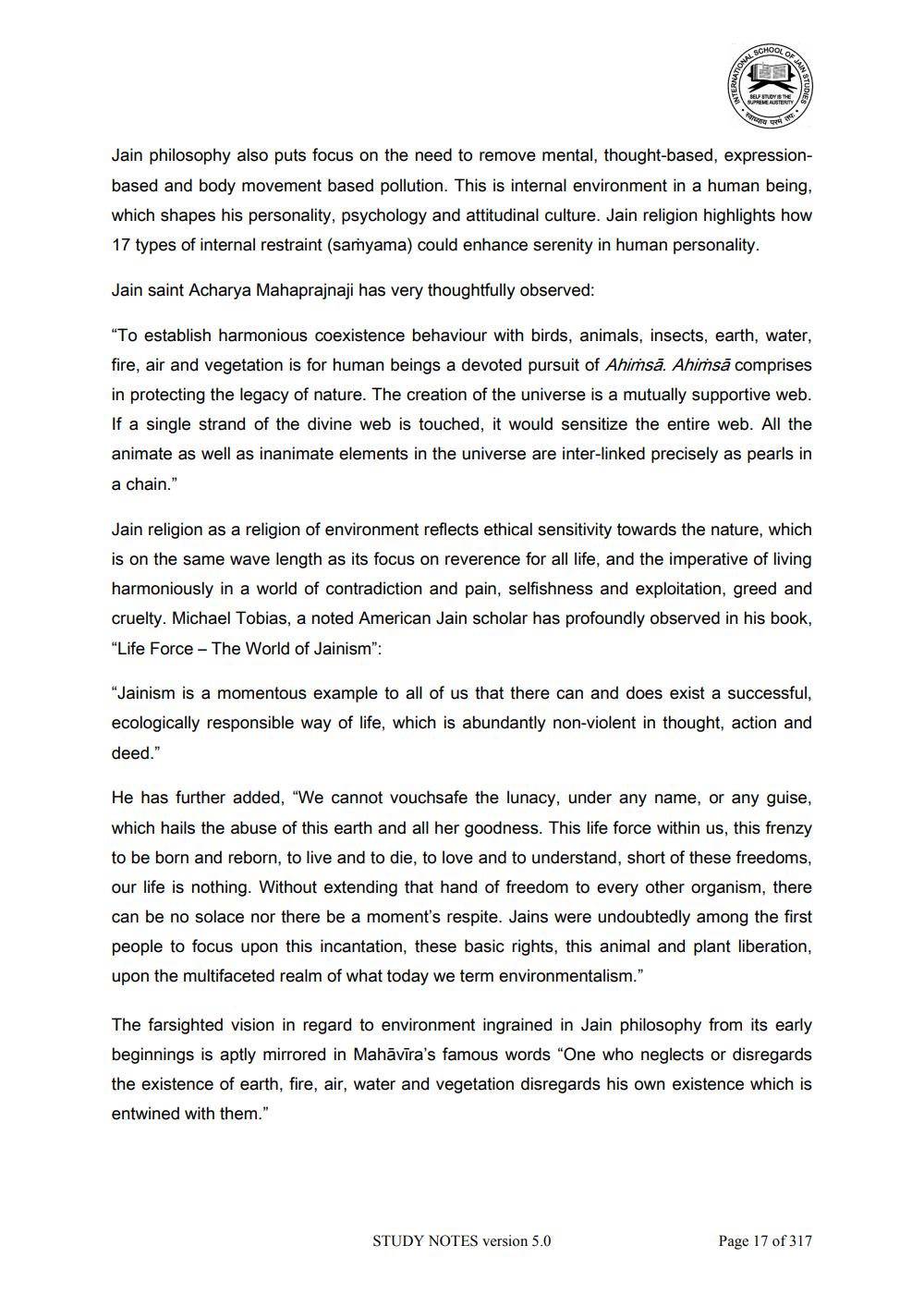________________
Jain philosophy also puts focus on the need to remove mental, thought-based, expressionbased and body movement based pollution. This is internal environment in a human being, which shapes his personality, psychology and attitudinal culture. Jain religion highlights how 17 types of internal restraint (samyama) could enhance serenity in human personality.
Jain saint Acharya Mahaprajnaji has very thoughtfully observed:
“To establish harmonious coexistence behaviour with birds, animals, insects, earth, water, fire, air and vegetation is for human beings a devoted pursuit of Ahiṁsā. Ahiṁsā comprises in protecting the legacy of nature. The creation of the universe is a mutually supportive web. If a single strand of the divine web is touched, it would sensitize the entire web. All the animate as well as inanimate elements in the universe are inter-linked precisely as pearls in a chain."
Jain religion as a religion of environment reflects ethical sensitivity towards the nature, which is on the same wave length as its focus on reverence for all life, and the imperative of living harmoniously in a world of contradiction and pain, selfishness and exploitation, greed and cruelty. Michael Tobias, a noted American Jain scholar has profoundly observed in his book, "Life Force - The World of Jainism":
“Jainism is a momentous example to all of us that there can and does exist a successful, ecologically responsible way of life, which is abundantly non-violent in thought, action and deed."
He has further added, "We cannot vouchsafe the lunacy, under any name, or any guise, which hails the abuse of this earth and all her goodness. This life force within us, this frenzy to be born and reborn, to live and to die, to love and to understand, short of these freedoms, our life is nothing. Without extending that hand of freedom to every other organism, there can be no solace nor there be a moment's respite. Jains were undoubtedly among the first people to focus upon this incantation, these basic rights, this animal and plant liberation, upon the multifaceted realm of what today we term environmentalism."
The farsighted vision in regard to environment ingrained in Jain philosophy from its early beginnings is aptly mirrored in Mahāvīra's famous words "One who neglects or disregards the existence of earth, fire, air, water and vegetation disregards his own existence which is entwined with them."
STUDY NOTES version 5.0
Page 17 of 317




